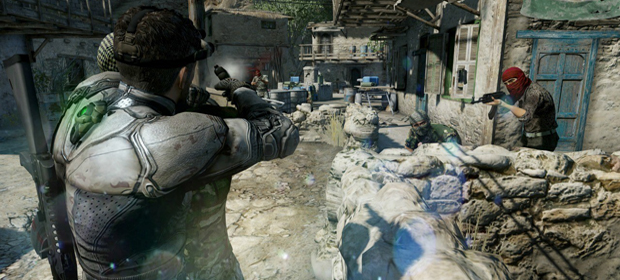Acclaimed best-selling author Tom Clancy passed away late last year, but his legacy continues with this month’s release of Jack Ryan: Shadow Recruit in cinemas worldwide.
The man and the brand behind such successful video game franchises as Rainbox Six, Ghost Recon, Splinter Cell and H.A.W.X. will live on in the much-loved shooter/espionage genre. This year we’re set to see something new, with Tom Clancy’s The Division, a highly anticipated new-gen game set in a post-apocalyptic New York City.
Our team wanted to take a moment to talk about their favourite Tom Clancy games.
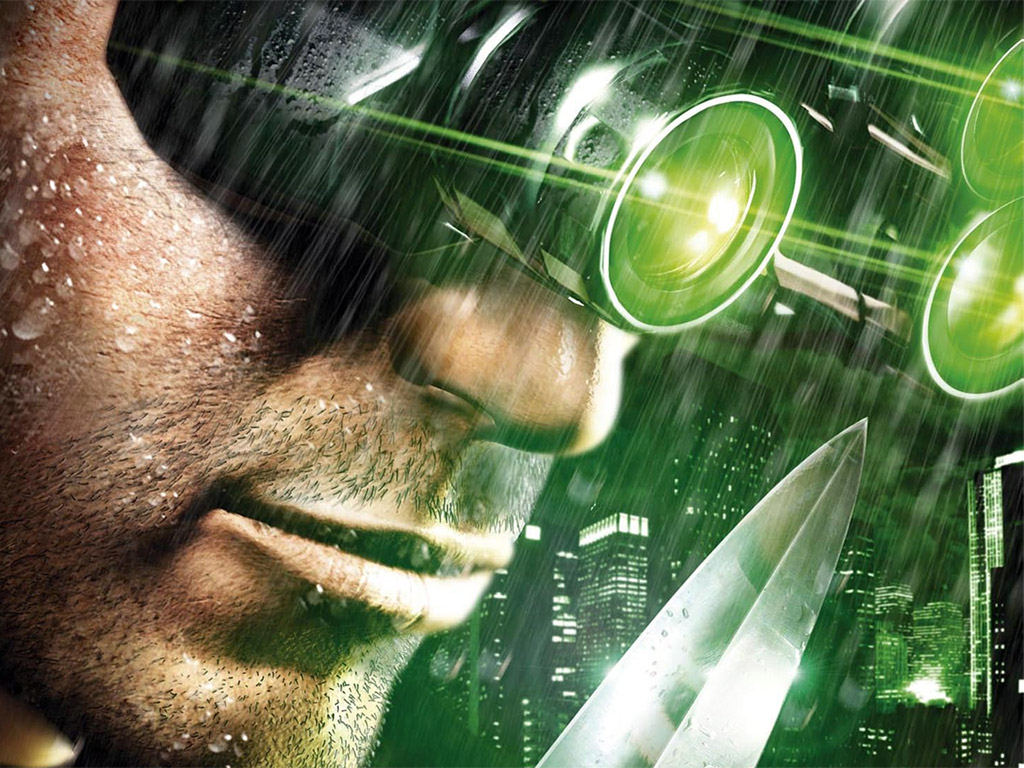
Mick Fraser tells us what he loves about Splinter Cell:
It’s not often you see an action hero exhibit emotional depth. The Master Chief may well be crying a river at the end of Halo 4, but you can’t see his face nor his sobs through that golden visor, and Marcus Fenix exorcises his own demons over Dom Santiago’s heroic death simply by blowing the living crap out of everything and airing his afro.
While Splinter Cell’s protagonist Sam Fisher isn’t exactly known for his sensitivity, his journey from the very first game through to the conclusion of Blacklist is impressively harrowing. He goes from top of his game to rock bottom, loses friends, grieves for a daughter who isn’t even dead thanks to the diabolical machinations of his two-faced employers, and eventually comes out on top of the pile again. He has to contend with rookies, double agents, liars, charlatans, rogues and Anna Grimsdottir’s pendulous temper on a daily basis.
The simple fact is that Splinter Cell wouldn’t work without Fisher. The change in voice actor from the legendary Michael Ironside to Eric Johnson had us fans worried, but to the surprise of many, the character endured. Blacklist’s Sam Fisher is as gruff and disagreeable as ever, just as willing to get his hands, and his conscience, dirty to get the job done.
I like everything about the Splinter Cell franchise, from the gunplay and stealth to the writing and the universe in which it’s set, but I don’t think any of it would be quite as compelling without Sam Fisher’s do or die attitude. Anyone who has played through the entire series will have seen the character at his lowest and at his most deadly; he’s an enduring force in the world of videogames, and one of the main reasons I find the Splinter Cell series so playable and so interesting.
James Bowden shares his thoughts on Splinter Cell: Chaos Theory Multiplayer:
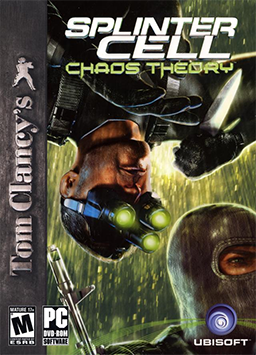 Spy versus Merc. It sounds so simple when you say it out loud but in the name of Clancy’s jargon fuelled narratives, it’s a brilliant concept. The genius lies in how committed the designers were to the idea of a grounded FPS military pair going up against a duo of lithe, acrobatic, non-lethal spies. The design difficulty is already apparent – this isn’t the usual symmetrical match up, this is two completely different styles of play that are engaging in a tight two vs two scenario. It’s more similar to Alien vs Predator than Rainbow Six, and by golly did it work.
Spy versus Merc. It sounds so simple when you say it out loud but in the name of Clancy’s jargon fuelled narratives, it’s a brilliant concept. The genius lies in how committed the designers were to the idea of a grounded FPS military pair going up against a duo of lithe, acrobatic, non-lethal spies. The design difficulty is already apparent – this isn’t the usual symmetrical match up, this is two completely different styles of play that are engaging in a tight two vs two scenario. It’s more similar to Alien vs Predator than Rainbow Six, and by golly did it work.
The mercenary role was almost survival horror in feel. You’d cast your flashlight around the rafters, hoping to catch a glimpse of tight latex and glittering goggle lights, constantly communicating with your buddy and keeping half an eye on the data terminals that the spies were after. On the other side the spies would be tip toe-ing around the level, trying to weigh up the actions of an erratic human mind instead of a predictable AI.
It’s often the case that you learn typical moves in a multiplayer game – typical ways a team will move at the start of a match, for instance – and Chaos Theory was no different. As matches went on the spies had to be more tricksy, and the mercs ever more cautious. The tight Two vs Two design kept things manageable and focused. Gadgets opened up interesting techniques as you began to implement them. The whole thing just infused you with a glorious vibe of development and improvement through simply getting better and learning how to play the two roles, no need for progression systems here. The Clancy universe made this possible, and for that I’m thankful.
Plus, as a spy you could get a merc in a strangle hold and then talk to them, even though they’re on the other team. You rarely see fun experimentation like that nowadays…
Adam Cook prefers Ghost Recon: Advanced Warfighter:
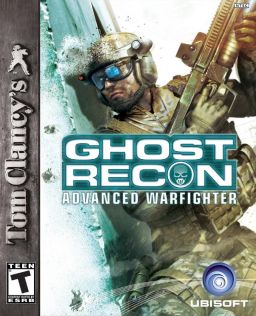 Ghost Recon Advance Warfighter; what a title. But it’ll forever hold a place in my memory for bringing so many of us together to play towards a common goal: Kill the other guys. Before shooters became as advanced as they are today, GRAW really burrowed under your skin, allowing you to take command of your squad-mates and instruct them on the battlefield. But it was online that it came alive, with both adversarial and co-operative modes. On a relatively new system (the Xbox 360), the in-game chat was essential for team-play, and the co-op modes posed a venerable challenge that required dedication and effort. Throwaway gaming, GRAW was not. Time may have eroded individual moments, but I’ll never forget the joy I felt when booting GRAW up for an evening of fun with friends, something that feels almost forgotten nowadays as games have gotten bigger and bigger.
Ghost Recon Advance Warfighter; what a title. But it’ll forever hold a place in my memory for bringing so many of us together to play towards a common goal: Kill the other guys. Before shooters became as advanced as they are today, GRAW really burrowed under your skin, allowing you to take command of your squad-mates and instruct them on the battlefield. But it was online that it came alive, with both adversarial and co-operative modes. On a relatively new system (the Xbox 360), the in-game chat was essential for team-play, and the co-op modes posed a venerable challenge that required dedication and effort. Throwaway gaming, GRAW was not. Time may have eroded individual moments, but I’ll never forget the joy I felt when booting GRAW up for an evening of fun with friends, something that feels almost forgotten nowadays as games have gotten bigger and bigger.
Robin Parker talks about his love for Rainbow Six: Vegas:
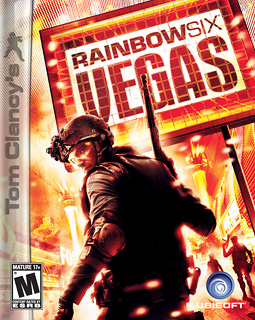 The Rainbow Six series always seemed a bit too rigid and inaccessible to me. Of course, there is a market for that type of game, but not being a strategy fan myself, the tactical squad-based earlier games didn’t grab me. Rainbow Six: Vegas and its sequel however, was Rainbow Six if it was a summer blockbuster. More accessible, more action, less thinking. And of course – it is set in Las Vegas. Not your typical location for a shooting game, but one rich with interesting landmarks and exiting set-pieces. The two games remain very much team-based, but instead of directing your squad, you were now co-operating with friends, which for me made it even more compelling.
The Rainbow Six series always seemed a bit too rigid and inaccessible to me. Of course, there is a market for that type of game, but not being a strategy fan myself, the tactical squad-based earlier games didn’t grab me. Rainbow Six: Vegas and its sequel however, was Rainbow Six if it was a summer blockbuster. More accessible, more action, less thinking. And of course – it is set in Las Vegas. Not your typical location for a shooting game, but one rich with interesting landmarks and exiting set-pieces. The two games remain very much team-based, but instead of directing your squad, you were now co-operating with friends, which for me made it even more compelling.
The game was closer to a first-person shooter than it had ever been in the past, and this meant you could pick it up and jump into any mission quickly, rather than spending ages equipping items and prepping your team. Vegas offered an immediate game, but still sported the team breach actions, rappels and gadgets that were synonymous with the series. And then there is the competitive multiplayer – with levelling up and ranking tiers, a variety of capture and deathmatch modes, and fantastic maps where you could breach through windows and abseil down skyscrapers, it was the first Xbox LIVE title that I got addicted to.
Michéal Murphy shares his thoughts on the original Rainbox Six:
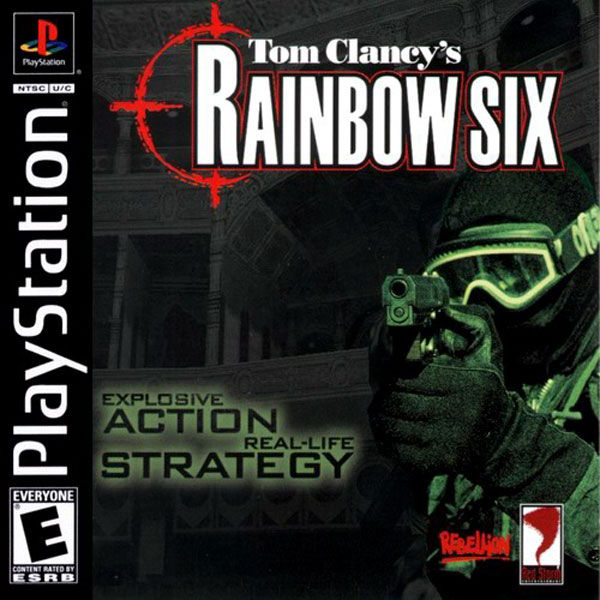 Ding Chavez was the man. Way back in 1998 Chavez was team leader of the newly formed counter terrorism unit made up of elite NATO soldiers. Destined for a life of gang warfare and street thugs, he managed to escape to an equally perilous occupation in the US Army before being hand picked for Rainbow squad. A crack shot with nerves of steel and a born leader, Chavez went on to lead Rainbow in some of their most dangerous missions.
Ding Chavez was the man. Way back in 1998 Chavez was team leader of the newly formed counter terrorism unit made up of elite NATO soldiers. Destined for a life of gang warfare and street thugs, he managed to escape to an equally perilous occupation in the US Army before being hand picked for Rainbow squad. A crack shot with nerves of steel and a born leader, Chavez went on to lead Rainbow in some of their most dangerous missions.
Though not the first tactical shooter, it was certainly one of the earliest hits and one that had the most lasting impact. It almost singlehandedly defined the genre and included several notable traits that are still seen today. Perhaps the most obvious being the difficulty. That, and the sheer spanking the game gave you if you tried to play it as a normal shooter. Rainbow Six had no time for running and gunning through the level. Instead it forced players to meticulously plan their attack from the outset. Infil and exfil points had to be carefully chosen, as did the loadout, team members and objectives.
Team members had varying competencies and special skills but Chavez was the all-rounder. Hence why he was the go-to choice and the one you probably spent the most time with. All others were expendable, but not Ding. He was gonna make it all the way and stop the viral outbreak at the Olympics (or whatever the plot was). If he fell in battle, then it was instant quit and reload. He was too important. Domingo ‘Ding’ Chavez, we salute you.


